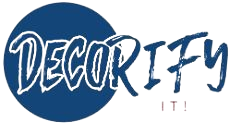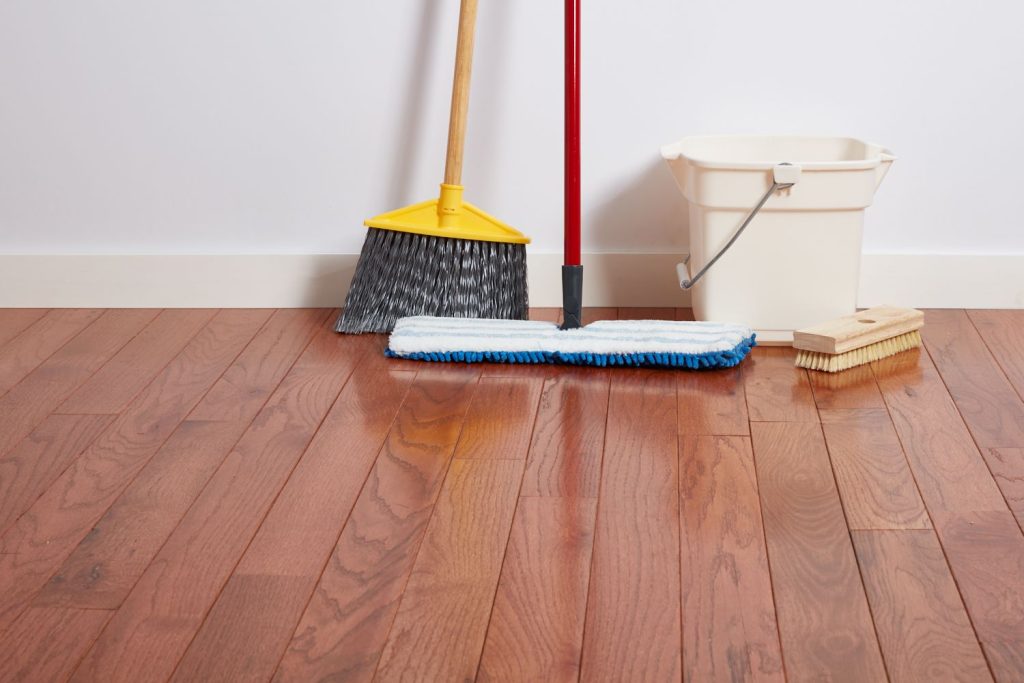There’s something timeless and charming about shiny hardwood floors. But over time, even the best-maintained wood can start to look dull, scuffed, or tired. Whether you’re dealing with years of wear or just seasonal buildup, restoring the natural shine of your floors is easier than you might think. This guide walks you through how to make hardwood floors shine again—safely, naturally, and effectively.
Why Hardwood Floors Lose Their Shine
Hardwood floors can lose their lustre due to accumulated dirt, residue from cleaning products, surface scratches, and general wear and tear. Even using the wrong floor cleaner can leave behind a hazy finish that dulls the wood floor luster. But don’t worry—your floor’s glow isn’t gone forever.
Step 1: Clear the Area and Dry Clean First
Before you polish anything, remove all furniture and rugs. Sweep or vacuum the floor thoroughly using a microfiber mop or vacuum with a soft brush attachment. This helps get rid of surface dirt and grit that can scratch the floor during wet cleaning.
Avoid vacuum heads with rotating brushes, as they can leave marks. You want to start with the cleanest surface possible before applying any solution or product.
Step 2: Choose the Right Cleaner
Not all floor cleaners are safe for hardwood. Avoid anything that’s too harsh, oily, or full of wax unless your flooring is specifically treated for it. For a natural wood floor cleaner, a simple vinegar solution often works wonders.
How to mix a vinegar solution:
- ½ cup of white vinegar
- 1 gallon of warm water
Dip your mop, wring it out well, and clean section by section. This vinegar solution helps cut through grime without damaging the finish. If you’re concerned about the scent or acidity, you can add a few drops of essential oil or try using eco-friendly floor polish products with pH-neutral formulas.
Step 3: Address Residue and Haze
If your floor looks dull even after cleaning, it might be due to residue from previous products. Many commercial cleaners and polishes leave a build-up over time. Use a mix of warm water and a small drop of dish soap to gently scrub the floor. Be sure to rinse with clean water and dry immediately with a soft towel.
If haze persists, try using a product specifically made to remove haze from wood floors. Just make sure it’s designed for your type of flooring—whether sealed, unsealed, or waxed.
Step 4: Polish and Shine
Now for the fun part: bringing the shine back. If your floors are sealed with polyurethane, you can safely use a best hardwood floor polish product designed for sealed wood. These are usually water-based and fast-drying, giving your floor that ‘like-new’ finish without leaving a sticky film.
Apply the polish evenly using a clean mop or cloth in an “S” pattern to prevent streaking. Always follow the manufacturer’s instructions and avoid walking on the floor until it’s dry.
For those who prefer a DIY hardwood floor shine, you can make your own solution using olive oil and vinegar:
DIY hardwood floor polish recipe:
- ¾ cup olive oil
- ¼ cup white vinegar
- Mix and apply sparingly using a soft cloth
This olive oil polish restores natural shine while conditioning the wood.
Step 5: Buff It Out
Once the polish is dry, use a microfiber mop or a soft cloth to buff the floor gently. This final step enhances the natural shine and helps distribute the polish evenly. If you have access to a low-speed buffer, even better—just be sure you know how to use it without damaging the surface.
This floor buffing technique is especially useful for restoring dull wood floors that haven’t been cared for in a while.
Step 6: Protect Your Shine
Now that your floors are glowing again, you’ll want to keep them that way. Here are a few simple hardwood floor maintenance tips to extend the life of the shine:
- Place doormats at entrances to reduce dirt and grit
- Use felt pads under furniture to prevent scratches
- Sweep or dust mop daily using a microfiber mop
- Avoid walking on floors with high heels or cleats
- Reapply polish every 2–3 months, depending on traffic
These steps don’t just preserve your shine—they protect the wood itself from long-term damage.
Natural vs. Store-Bought: Which Floor Cleaner is Better?
There’s an ongoing debate between using store-bought products and homemade floor polish options. If you prefer non-toxic floor cleaner solutions, homemade mixes like the vinegar and olive oil combination offer a safe and cost-effective alternative. They work particularly well for people with kids or pets, where harsh chemicals are a concern.
On the other hand, commercial floor care products are formulated for consistency and may offer quicker results, especially for high-traffic areas. Look for labels that mention “safe for hardwood” or “no build-up” to avoid problems in the long run.
What to Avoid When Cleaning Hardwood Floors
- Never use a soaking-wet mop—floor protection starts with preventing water damage
- Don’t apply wax on polyurethane-finished floors—it can cause streaks and slippery surfaces
- Stay away from steam mops unless your floor manufacturer recommends them
- Skip abrasive pads or brushes that can ruin the finish
- Avoid ammonia-based cleaners—they break down protective coatings over time
When to Call a Professional
If you’ve tried all the steps above and your floor still looks tired, it might be time to bring in a professional. Deep scratches, heavy residue, or worn-out finishes may need sanding or refinishing. While it’s more costly, it can completely rejuvenate your floors.
Professionals also know the right polishing technique for each wood type, whether oak, maple, or walnut, ensuring the finish complements the grain and colour.
Final Thoughts
Bringing back the shine to your hardwood floors doesn’t have to be expensive or complicated. With the right tools, products, and a bit of effort, you can revive even the dullest surfaces. Remember, consistency is key—regular cleaning with the proper methods keeps the shine lasting longer.
Whether you go the DIY route or prefer ready-made floor care products, always choose solutions that are safe for wood and kind to your home. Once you see that gorgeous, glossy finish reflecting light again, you’ll know it was well worth the effort.

